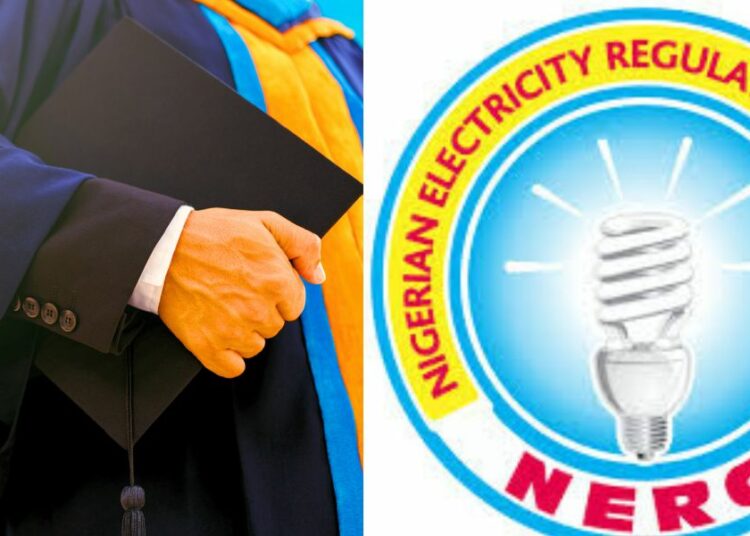In a nation where access to education is already a privilege for the few, the recent decision by the Committee of Vice Chancellors to impose an N80,000 electricity fee on university students is a profound misstep.
The root of this issue lies in the drastic hike in electricity tariffs imposed by the Nigerian Electricity Regulatory Commission (NERC), which has left many of our esteemed institutions of higher learning reeling. With universities now facing electricity bills that can reach up to N300 million per month, it is understandable that administrators are seeking ways to offset these crippling costs.
The nearly 300 percent tariff hike and the placement of universities under Band A by the industry regulator have led to an astronomical rise in the electricity bills of the Ivory Towers.
It is instructive to note that universities pay an average monthly electricity bill of N250 million to N300 million.
Sadly, universities that could not pay the bills were promptly disconnected by their distribution companies (DisCos). This further aggravated living, teaching, and learning conditions in the university community, with students protesting the suffering it has imposed.
This drastic hike has left many institutions of higher learning reeling, with their electricity bills skyrocketing. Universities have been desperate to offset the costs.
Against this backdrop, the Committee of Vice Chancellors came up with a resolution to charge each student an N80,000 electricity fee.
In our view, passing the burden to students in the form of an N80,000 electricity fee is unacceptable.
This ill-conceived plan is the culmination of a series of events that have left Nigerian students shouldering an increasingly heavy financial load.
When the NERC raised electricity tariffs, it set off a chain reaction that has pushed universities to the brink. With their budgets already strained, universities have resorted to transferring the burden to students, who are now expected to pay an additional N80,000 as an electricity fee.
As Nigerian students struggle to bear the weight of numerous fees and levies, this new charge, in our view, will push many to the edge. The addition of an electricity fee will exacerbate the financial woes of students and their families, possibly forcing some to abandon their academic pursuits.
As we previously stated, this is unacceptable, especially in a country where education is already a privilege reserved for the few who can afford it.
Rather than passing the buck to students, universities should explore alternative revenue streams. They can invest in generating their own electricity, reducing reliance on the national grid, and cutting costs. Universities can also adopt cost-saving measures, such as energy-efficient lighting and solar power.
Furthermore, the government must intervene to remove educational institutions from the “Band A” classification, which subjects them to exorbitant electricity tariffs. This will help reduce the financial burden on universities and students alike.
The future of Nigeria’s youth is at stake. We cannot allow the pursuit of higher education to become an unattainable dream for the majority of our citizens. It is time for university administrators and policymakers to come together and find a solution that preserves the accessibility and affordability of tertiary education in our nation.
One potential solution lies in the diversification of university revenue streams. Rather than passing the burden to students, these institutions should explore innovative ways to generate income, such as forging partnerships with the private sector, securing grants and endowments, and expanding their range of academic programs and research initiatives.
By tapping into alternative sources of funding, universities can reduce their reliance on student fees and ensure that the cost of education remains within reach of the average Nigerian family. This, in turn, would open the doors of opportunity to a new generation of leaders, innovators, and change-makers who can play a crucial role in the development and transformation of our country.
Moreover, the government must take a more active role in supporting higher education institutions. This could involve increased funding for public universities, tax incentives for private sector investment in education, and the implementation of comprehensive student loan and scholarship programs.
By making education a national priority, the government can signal its commitment to nurturing the intellectual capital that will drive Nigeria’s future prosperity.
The proposed N80,000 electricity fee is not merely a financial burden; it represents a fundamental assault on the core values of a just and equitable society. Education is the great equalizer, the key to unlocking the vast potential of our nation’s youth. To deny them this opportunity is to betray the very promise of a better tomorrow.
In view of this perspective, we urge the Committee of Vice Chancellors to reconsider this misguided plan and to work in close collaboration with the government, the private sector, and the broader Nigerian community to find a sustainable solution that preserves the accessibility and affordability of higher education.





